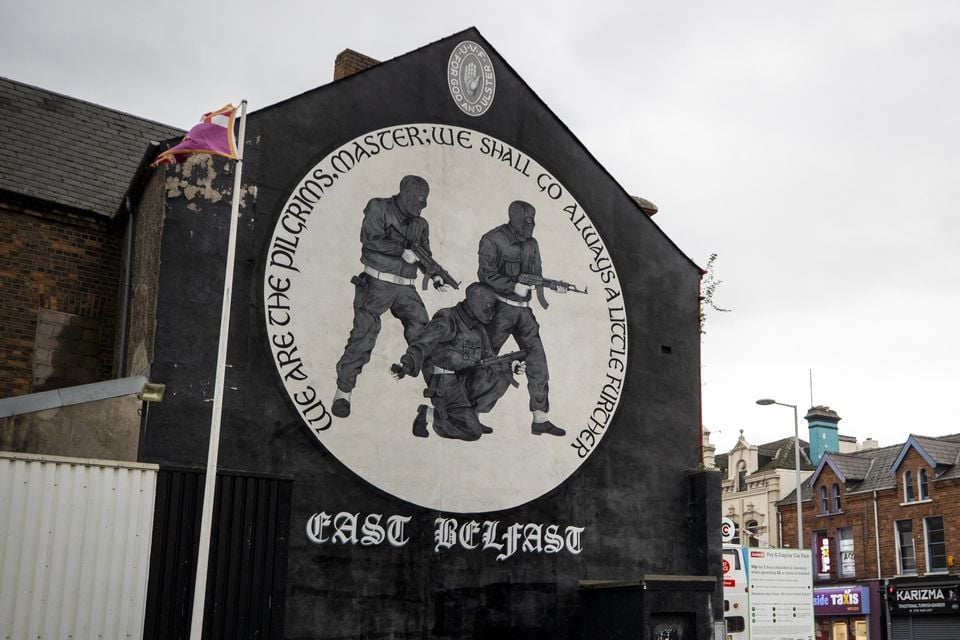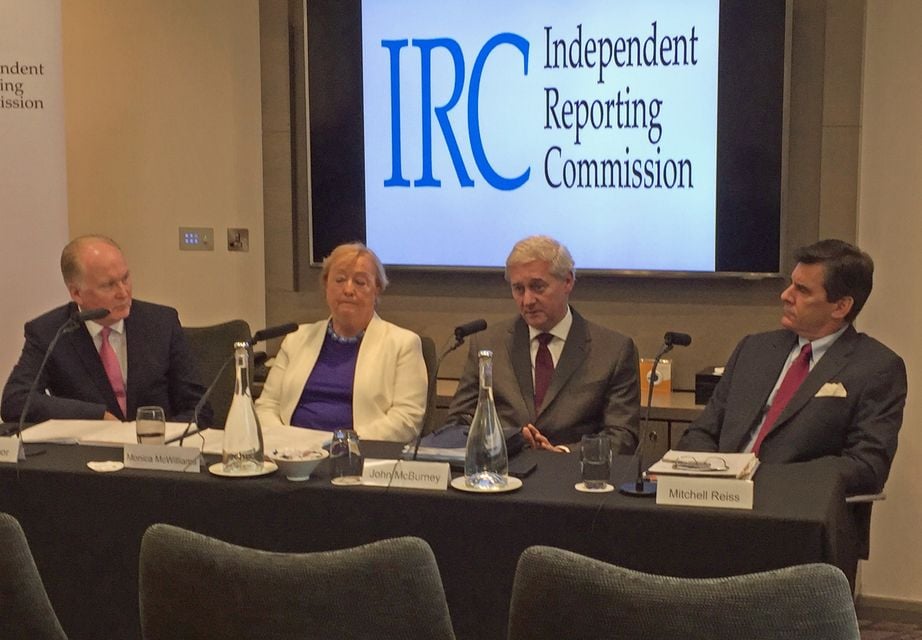The UK and Irish governments are set to begin the first steps over potential engagement with paramilitary groups to encourage them to disband, the Secretary of State has confirmed.
Northern Ireland Secretary Hilary Benn made the announcement in a written statement in Westminster following the publication of the latest report by the Independent Reporting Commission (IRC).
That report urged both governments to appoint an independent person to scope out what a formal process of engagement and group transition for paramilitary organisations might look like and said a trusted intermediary is needed to oversee the transitioning of those groups.
In his statement to parliament, Mr Benn suggested moves are underway to appoint that person, who will “carry out a short scoping and engagement exercise to assess whether there is merit in, and support for, a formal process of engagement to bring about paramilitary group transition to disbandment.”
However, Mr Benn said in his statement the “scoping exercise” underway between the governments is not an alterative to “existing law enforcement and criminal justice measures and the wider effort through the Executive Programme to tackle the ongoing violence and harm caused by paramilitary groups”.
He also confirmed as part of the potential engagement there will be “no financial offer” made to paramilitary groups “or to the individuals involved in them in exchange for an end to violence and ongoing harms”.
There is as yet no indication who that expert will be, with the Secretary confirming he will write to the NI Affairs Committee to set out more detail.
The move was welcomed by UUP leader Mike Nesbitt who said the decision was “the right one, but also a difficult one”.
Read more
“This is not about conferring legitimacy on these gangs, nor should it be about buying them out. It’s not about money,” he added.
“It’s about removing a large remaining obstacle to creating a normal society, where citizens do not need to look over their shoulders as they get on with their lives.”
However, Alliance Party MP Sorcha Eastwood was critical, saying it is “well beyond time those engaged in paramilitarism left the stage”.
“Paramilitaries do not need to be negotiated with, encouraged or offered inducements to get off the backs of the community,” she added.
“The UK Government needs to realise this and instead of appointing a go between, tell these illegal groups they should disband immediately and remind them failure to do so will result in them continuing to face the full force of the law.”
The latest IRC report, which was released today, was completed prior to the attempted murder of taxi driver Sean O’Reilly on Sunday. It is being linked to a dissident republican feud.
“More violence is not the answer” says Detective Chief Inspector Gina Quinn
Read more
The IRC comprises four commissioners: John McBurney and Monica McWilliams, who were nominated by the Northern Ireland Executive, Tim O’Connor, nominated by the Irish Government, and Mitchell Reiss, nominated by the UK Government.
The commissioners said: “There has been a decrease in shooting incidents and paramilitary-style assaults.
“However, bombing incidents and casualties from paramilitary-style shootings have remained consistent with previous years. Intimidation, coercive control and threats linked to paramilitary groups persist and remain a real concern.”
They added: “In 2024, we have seen shifting dynamics within both republican and loyalist paramilitary groups, including changes in leadership, reported splits, speculation about possible feuds, ongoing questions about whether actions were sanctioned by paramilitary leaders, various interpretations of larger gatherings of people, and increasing interactions with organised crime.
“We understand that this can be challenging for the PSNI and others in attributing responsibility for, or involvement in, certain actions.”
The IRC said that where there is paramilitary involvement it must be called out.
(From left) Tim O’Connor, Monica McWilliams, John McBurney and Mitchell Reiss (Photo: Michael McHugh)
In their previous report, the commissioners said tackling paramilitarism requires a “twin-track approach”.
They now call for a “third dimension” to complement that.
“Recognising that group transition is a complex and controversial recommendation, the commissioners, in both their fifth and sixth reports, proposed an intermediate step in the form of the appointment by the UK and Irish Governments of an independent person who would scope out and prepare the ground with various stakeholders for what a possible formal process of engagement and group transition might look like,” they said.
“We welcome the progress being made by the two Governments towards implementing our recommendation to appoint an independent person who would scope out what a possible formal process of engagement and group transition might look like.”
The commissioners also welcomed the focus on paramilitarism in the new draft Programme for Government of the Northern Ireland Executive.
“We strongly recommend that some of the targeted paramilitary-focused work which the programme has been responsible for should continue beyond 2027, while also ensuring that consideration is given to those elements of the work of tackling paramilitarism that could be integrated into mainstream policies.”
This report contains three new recommendations.
These are a call for the review of the membership of the sponsor group which oversees the Executive Programme on Paramilitarism and Organised Crime and that the Executive ensures a “whole-of-government” approach.
They have also recommended that paramilitary-focused work needs to continue beyond March 2027 when the Executive Programme on Paramilitarism and Organised Crime is due to end.
Mourners attend the funeral of Brendan ‘Bik’ McFarlane


